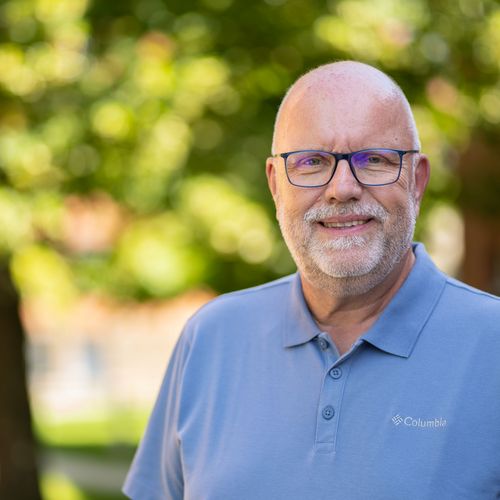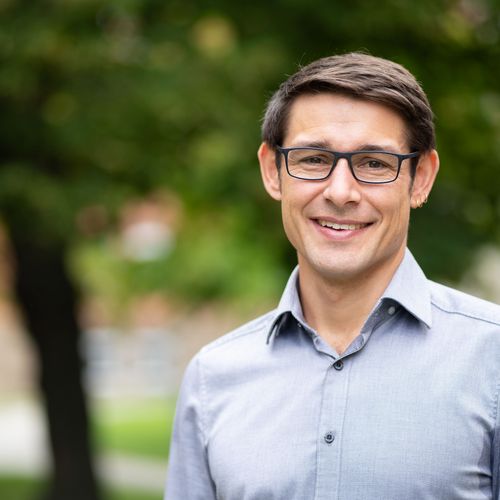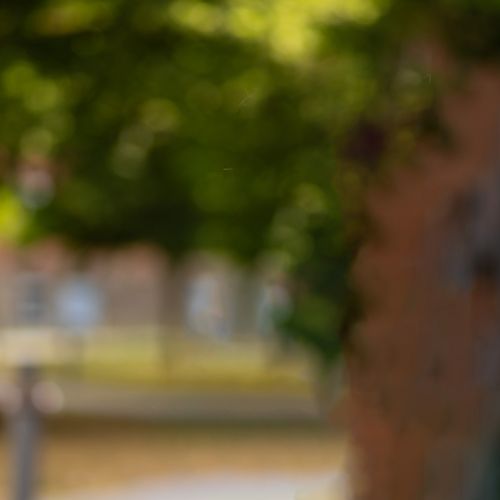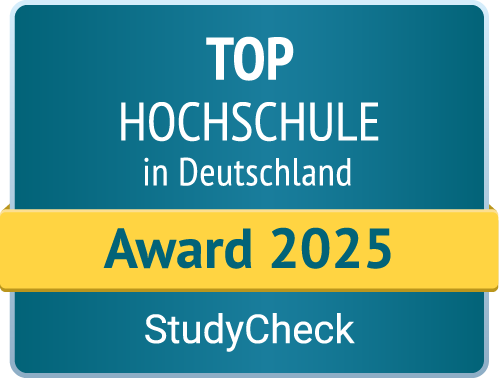"We cannot solve our problems with the same thinking we used when we created them."
Albert Einstein
Sustainability in buildings is not just a trend, it's the only way forward. The global commitment to offer sustainable and affordable built environments will include a transition towards CO2-neutral solutions for both new and existing buildings. This task is not only challenging but also requires lots of motivated people with expertise in the field of building energy efficiency.
With our advanced Masters course Sustainable Building Systems, you can not only be a part of this transition but also drive it with your expertise.
Did you know that buildings today account globally for substantial primary energy usage and electricity consumption? In the backdrop of global warming and limited availability of energy resources, our Masters program offers you an opportunity to apply your skills towards solving the global problems with future technologies.
| Short form | SBS |
| Type of study | Full time |
| Standard period of study | 3 semester |
| Closing | Master of Engineering (M.Eng.) |
| Start of studies | winter semester |
| Admission restrictions | specific |
| Lecture location | Feuchtwangen |
| Language of instruction | English |
| Course management | Prof. Dr. Haresh Vaidya |
| Student advisory service | Prof. Dr. Haresh Vaidya Prof. Dr. Mathias Moog |
| Student services | studierendenservice.sbs(at)hs-ansbach.de |
| Application Period | 1st May – 15th September |
You can only start the SBS Master's programme in the winter semester. As for all degree programmes, you must apply for this programme in good time via the online application portal. Please note that the regular deadlines are cut-off deadlines. We must therefore receive your application by the last day of the respective deadline at the latest.
All information about the application can be found Sie HERE.
In addition, a successfully completed university degree in a relevant course or an equivalent domestic or foreign degree with an overall examination grade of at least 2.5 is required, which usually comprises 210 ECTS points, but at least 180 ECTS points. Courses that are based on the fundamentals of engineering (AIW, NIW, ESW, etc.), electrical engineering, mechanical engineering, physics, computer science, supply engineering or comparable are considered relevant .
(BayHIG) applies to applicants to Bavarian Higher Education Innovation Act. Admission Requirements:
- Bachelor's degree with 180 ECTS points (Engineering, electrical engineering, mechanical engineering, physics, computer science, supply engineering or comparable)
- Language: English: IELTS at least 6,5; TOEFL at least 85 points (B2) / German: A1
- Bachelor (or comparable) grade point average min. 2.5 (uni-assist)
- Letter of motivation min. 200 to max. 500 words
Master application from abroad Master applicants with relevant preliminary studies outside of Germany need a VPD from uni-assist and must apply with it in the PRIMUSS applicant portal of University of Applied Science Ansbach. We recommend to apply as early as possible. You can apply for the VPD at uni-assist before the application period at the University of Applied Sciences Ansbach starts. Please plan to have received your VPD until the end of the appliecation period of our university at the very latest. Usually uni-assist needs 4 to 6 weeks to work on received requests (complete ones, including payment). Uni-assist informs on current processing times (dependant on region) on their page of uni-assist.de.
The "Sustainable Building Systems" master's degree comprises 90 ECTS, which can be completed in three semesters. If you start with a degree that comprises less than 210 ECTS, you may have to plan additional time for catching up on modules/ECTS.
In the first semester, elementary technical knowledge about the components and participants of the system is imparted through the module "Electrical Engineering for Energy Applications". "Simulation of Building Energy Concepts" is one of the five digital modules in the first semester that deals with the interaction of the individual participants in the energy system. "Building Physics and Energy System Technologies" teaches students about physical phenomena affecting buildings, including the behavior of heat, air, and moisture, and their impact on energy efficiency, indoor air quality, and human comfort. “Sustainable HVAC ” (heating, ventilation, and air conditioning) involves the design, installation, and operation of HVAC systems that reduce energy consumption, minimize environmental impact, and enhance indoor air quality and human comfort. An elective module allows students to explore other exciting topics in the first and second semesters."
In the second semester, the “Virtual Power Plant” deals with another essential component for the building energy systems of the future, namely the combination of decentralized energy producers with systems for storing or otherwise using excess energy in so-called Power- to -X systems for a reliable supply. In “Photovoltaics engineering”, students learn the basics of solar and go through the design, development, and implementation of technologies that convert sunlight into electricity using semiconductor materials.“Smart Building Controls” refers to the use of automated systems and technology to optimize the performance of building systems, including HVAC, lighting, and security, to enhance energy efficiency, occupant comfort, and operational effectiveness. With “BIM (Building Information Modeling)” students learn digital representation of a building's physical and functional characteristics that facilitates collaboration and information exchange among project stakeholders. With "Basics Sustainability" students learn the most important sustainability models and analysis methods for sustainable development. From environmental and resource economics, basic methods for a fair distribution of environmental goods as well as environmental policy instruments and tools for sustainable spatial design are presented.
The third semester enables selected topics to be deepened as part of the “Master's Thesis” , which is planned in cooperation with various companies. The “Master's seminar on scientific work” accompanies the master's thesis, opens up the exchange between students in the form of lectures and provides the tools for solid scientific work.
You complete the master’s degree in three semesters. After successful completion, you will be awarded the internationally recognized academic degree Master of Engineering ( M.Eng .):
Smart building systems are becoming increasingly popular in today's world due to their ability to improve energy efficiency, optimize space utilization, enhance safety and security, and provide a better user experience. As more buildings become smart, the demand for skilled professionals in these fields will continue to grow. In addition, with the increased focus on sustainability and energy efficiency, there will be an even greater need for experts in smart building systems.
Furthermore, the growth of smart cities and the Internet of Things (IoT) will also create opportunities for professionals in smart building systems to collaborate with other industries and work on large-scale projects.
As a result, there are excellent job prospects for individuals with skills and expertise in smart building systems.
Branches
- Freelance planner
- Certified energy consultant
- Architectural offices
- Utilities and public utilities
- Companies in building technology and plant construction
- Property management
- Facility management companies
Fields of activity
- Planning of technical building systems in the areas
- Construction of technical building systems
- Specialist and manager in energy, building and supply technology companies
- Advice on the technical sale of products, plants and systems for supply engineering and technical building equipment
- Development of products, plants, supply engineering systems and technical building equipment
- Planning and operation in the field of energy production and energy distribution
Staff

Prof. Dr.-Ing. Haresh Vaidya
Studiengangsleiter Sustainable Building Systems (SBS)
09852 86398-210 FEU 1.1.5 nach Vereinbarung haresh.vaidya vCard
Prof. Dr.-Ing. Haresh Vaidya

Studiengangsleiter Sustainable Building Systems (SBS)
Funktionen:
- Leiter des Campus Feuchtwangen
- Studiengangsleiter Sustainable Building Systems (SBS)
- Studienfachberatung Sustainable Building Systems (SBS)
- Professor Nachhaltige Ingenieurwissenschaften (NIW)
Lehrgebiete:
- Nachhaltige Gebäudetechnik
- Effiziente Gebäude

Prof. Dr. Mathias Moog
Studienfachberatung Sustainable Building Systems (SBS)
0981 4877-315 92.1.44 nach Vereinbarung mathias.moog vCard
Prof. Dr. Mathias Moog

Studienfachberatung Sustainable Building Systems (SBS)
Funktionen:
- Professor Nachhaltige Ingenieurwissenschaften (NIW)
- Professor Künstliche Intelligenz und Kognitive Systeme (KIK)
- Studienfachberatung Sustainable Building Systems (SBS)
- Prodekan Fakultät Technik
- Mitglied Fakultätsrat Technik
Lehrgebiete:
- Angewandte Informatik
- Ingenieurmathematik
- Simulation
Vita:
- Abitur and dem beruflichen Gymnasium in Marburg mit dem Schwerpunkt Elektrotechnik
- Mathematik Studium an der Philipps-Universität Marburg
Diplomarbeit über singuläre Lösungen nichtlinearer Systeme - Promotion am Fraunhofer ITWM in Kaiserslautern auf dem Gebiet der numerischen Simulation von Mehrphasenströmungen
- Industrie Tätigkeiten
- Entwicklung von Verfahren zur automatischen Klassifikation von Internet Inhalten (Familien Filter) bei Cobion (mittlerweile in IBM aufgegangen)
- Leiter der Produktentwicklung eines Kunststoffspritzguss Simulationsprogramms (SIGMASOFT)
- Seit 2010 Professor an der Hochschule Ansbach
IT als durchgängiges Thema in der Lehre:
Der Einsatz von Software zieht sich durch meine gesamten Lehrveranstaltungen.
Dafür setze ich stark auf freie Software und populäre Entwicklungsumgebungen. Die Studierenden können das gelernte am eigenen Rechner ausprobieren und vertiefen. Hier ein paar Beispiele:
- Ingenieurmathematik
- Ich nutze Octave (im PC Pool an der Hochschule auch Matlab) sowohl für numerische Berechnungen als auch für symbolische Rechnungen
- Für jeden Aufgabentyp aus der Ingenieurmathematik zeige ich exemplarisch wie diese Aufgaben in Octave / Matlab gelöste werden können
- Statistik
- Ich setze Excel / LibreOffice / OpenOffice für einfache Statistische Auswertungen ein
- Octave / Matlab setze ich für komplexere Anwendungen ein
- Die Beispiele in meinem Kurs greifen Anwendungen aus Ingenieurwissenschaften auf und zeigen exemplarisch wie der Einsatz von Software die Berechnungen unterstützen kann
- Informatik
Die Studierenden lernen im ersten Semester Java anhand der Netbeans Entwicklungsumgebung kennen. Auf diesen Grundlagen setzen meine Lehrveranstaltungen und Projektarbeiten auf.- Mikrocontroller
Ich verwende die populäre Arduino Plattform. Die Einstiegshürde ist für Studierende sehr niedrig und das Angebot an günstiger Hardware und frei verfügbarer Software ist sehr groß - Robotik
Wie bei den Mikrocontrollern setze ich auch hier auf die Arduino Plattform. Durch den Einsatz von 3D Druck lassen sich sehr schnell Prototypen und kleine Maschinen bauen.
- Mikrocontroller
- Gebäudeautomation
Freie Soft- und Hardware öffnet einen Zugang der die Studierenden zu eigenen Entwicklungen angegt. Daneben setze ich in der Lehre auch auf etablierte Standards wie z.B. KNX.- Hardware: Raspberry PI als Leitrechner, Arduinos als Sensoren / Aktoren
- Software: openHAB für die Steuerung und Automatisierung, MySQL als Datenbank
Kommerzielle Software nutze ich wenn dies für die Anwendungen und die Verbindung zu anderen Lehrveranstaltungen von Vorteil ist.
- Matlab
Für meine Grundlagenfächer können die Studierenden Matlab oder Octave einsetzen. - ETS
In der Gebäudeautomation setze ich - neben freier Soft- und Hardware - auf dem KNX Standard mit der entsprechenden Software und Hardware auf.
Je nach Anwendungsgebiet setze ich auf weitere Software wie z.B. LabView, Comsol oder Berkeley Madonna.
Forschungsschwerpunkte:
- Numerische Mathematik
- Einsatz von Matlab und Ocatave für ingenieurwissenschaftliche Berechnungen
- Algorithmen
- Simulation
- Modellbildung
- Kopplung von Simulationsmodellen und Datenanalysen
- Angewandte Informatik
- Mikrocontroller Programmierung
- Softwaretechnik
- IoT, Smart Home und Gebäudeautomation
- Wissenschaftlicher Partner bei KNX
- Einsatz von openHAB in Lehre und Forschung
- Energiecontrolling

Ralph-Peter Kappestein
Leiter Studierendenservice der School of Business and Technology (SBT)
0981 4877-143 BHS 3.02 (Brauhausstraße 15, 91522 Ansbach) nach Vereinbarung ralph-peter.kappestein vCard
Ralph-Peter Kappestein

0981 4877-143
BHS 3.02 (Brauhausstraße 15, 91522 Ansbach)
nach Vereinbarung
ralph-peter.kappestein
vCard
Leiter Studierendenservice der School of Business and Technology (SBT)
Funktionen:
- Leiter Studierendenservice der School of Business and Technology (SBT)

Dr. Gerd Hofmann
Studienfachberatung (Student Advisory Service)
09852 86398-140 FEU 1.1.3 (An der Hochschule 1, 91555 Feuchtwangen) nach Vereinbarung gerd.hofmann vCard
Dr. Gerd Hofmann

09852 86398-140
FEU 1.1.3 (An der Hochschule 1, 91555 Feuchtwangen)
nach Vereinbarung
gerd.hofmann
vCard
Studienfachberatung (Student Advisory Service)
Funktionen:
- Studienfachberatung Smart Energy Systems (SES)
- Wissenschaftlicher Mitarbeiter Campus Feuchtwangen
- Koordinator Campus Feuchtwangen

Jennifer Herud
Zentrumsassistentin Studien- und Technologiezentrum Feuchtwangen (FEU)
09852 86398-120 FEU 1.0.2 (An der Hochschule 1, 91555 Feuchtwangen) nach Vereinbarung jennifer.herud vCard
Jennifer Herud

09852 86398-120
FEU 1.0.2 (An der Hochschule 1, 91555 Feuchtwangen)
nach Vereinbarung
jennifer.herud
vCard
Zentrumsassistentin Studien- und Technologiezentrum Feuchtwangen (FEU)
Funktionen:
- Zentrumsassistentin Studien- und Technologiezentrum Feuchtwangen (FEU)

Prof. Dr. Alexander Buchele
Professor Sustainable Building Systems (SBS)
0981/4877–309 92.1.41 nach Vereinbarung alexander.buchele vCard
Prof. Dr. Alexander Buchele

Professor Sustainable Building Systems (SBS)
Funktionen:
- Studiengangsleitung Nachhaltige Ingenieurwissenschaften (NIW)
- Professor Nachhaltige Ingenieurwissenschaften (NIW)
- Professor Sustainable Building Systems (SBS)

Dipl.-Ing. (FH) Oliver Abel
Laboringenieur Studien- und Technologiezentrum Feuchtwangen (FEU)
09852 86398-240 FEU 1.0.3 (An der Hochschule 1, 91555 Feuchtwangen) nach Vereinbarung oliver.abel vCard
Dipl.-Ing. (FH) Oliver Abel

09852 86398-240
FEU 1.0.3 (An der Hochschule 1, 91555 Feuchtwangen)
nach Vereinbarung
oliver.abel
vCard
Laboringenieur Studien- und Technologiezentrum Feuchtwangen (FEU)
Funktionen:
- Laboringenieur Studien- und Technologiezentrum Feuchtwangen (FEU)

Thomas Haupt, M.Sc. (FH)
Wissenschaftlicher Mitarbeiter am Campus Feuchtwangen
09852 86398-150 FEU 1.0.4 (An der Hochschule 1, 91555 Feuchtwangen) nach Vereinbarung thomas.haupt(at)hs-ansbach.de vCard
Thomas Haupt, M.Sc. (FH)

09852 86398-150
FEU 1.0.4 (An der Hochschule 1, 91555 Feuchtwangen)
nach Vereinbarung
thomas.haupt(at)hs-ansbach.de
vCard
Wissenschaftlicher Mitarbeiter am Campus Feuchtwangen
Funktionen:
- Wissenschaftlicher Mitarbeiter am Campus Feuchtwangen
© 2025 Hochschule Ansbach





